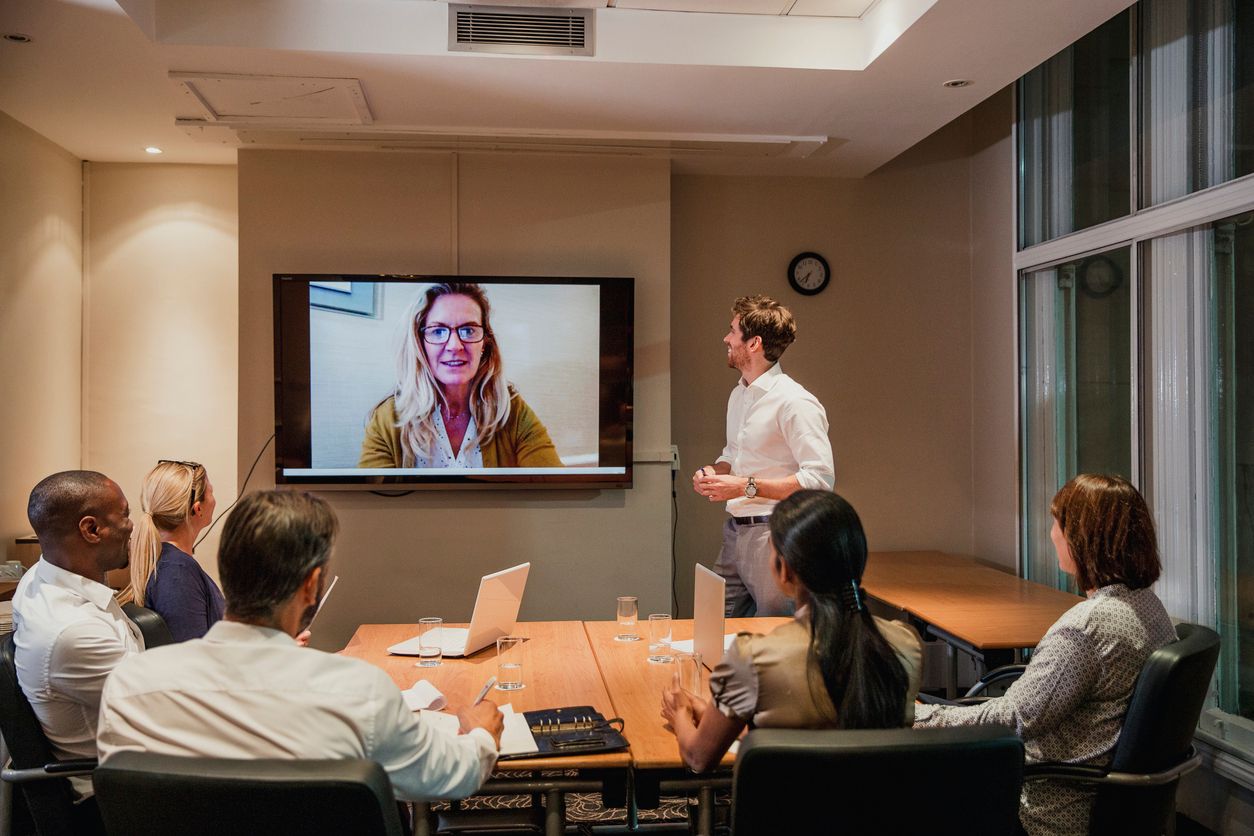One of the most understated and often overlooked stages in the hiring process is the employee reference check. But, checking candidate's references is generally the last and final step before you bring a new person into your company, so it shouldn't be taken lightly.
You want to use this moment to check to do a bit of due diligence and confirm everything you've been told by your candidates so far is true. Before you make that final hiring decision, you need to be sure that your prospective employee possesses the skills, experience, and attitude required to thrive in a role with your company.
So, to help you make the most of this vital step, we've compiled our top tips for helping you carry out your employee reference checks!
Here's what we'll cover:
- Inform the candidate that you check references
- Always do it yourself
- Avoid backchannel references
- Ask to speak to specific referee
- Phone the references
- Verify the simple details first
- Focus on counting them in, not out
- Ask the right questions
- Make sure you take notes
- Check multiple sources
- Don’t jump to conclusions
Inform the candidate that you check references
Whilst many employers still undertake reference checks as part of their hiring practices, it's still worth letting your candidates know as early as possible in the interviewing process that this is a process that you undertake.
Letting candidates know that you wish to contact former employers sooner rather than later means they’ll have a better chance of reconnecting with old contacts to compile a solid list of references. Think about it, it might have been a while since they spoke to a former manager, and they may need to do a bit of LinkedIn browsing to get back in touch with them.
In addition, informing them early on in the interviewing process will increase your chances of getting truthful answers from your candidates. If they know this information is going to be verified by a third party, they are much less likely to try and take you for a spin during the interview.

Always do it yourself
If your prospective hire will be working directly under you, don't leave it to someone else to check their references. You'll be the one they are reporting to so you yourself will want to know what kind of employee they are straight from the referee's mouth.
Not to mention, as their reporting manager, you have intimate knowledge of the role and all it entails, meaning you will be more capable out of anyone else to ask role-specific follow up questions if necessary.
Chatting with someone in the same position as you and who directly handled this employee is also a great way to get straight to the point. As someone who was in the same shoes as you, they will know exactly what you need to know in this reference check and they will be happy to pass this information on.
Avoid backchannel references
Some employers prefer to conduct more non-traditional background checks, called backchannel references checks. This rogue process involves snooping out the contact information for former colleagues or past employers of your prospective hire despite them not being on the list of references.
In the current era of digital living, social media makes it incredibly easy to find and communicate with strangers. But just because it's easy, doesn't mean it should be done. Prospective employees provide a list of references for a reason. Maybe they are unable to use their current professional connections as their boss is unaware that they plan to leave. Or maybe your employee had a difficult conflict with a former employer and it ended badly. Nobody is perfect.
So stick to your directed references and avoid sneaking around behind your potential new employee's back. You may think that performing your own reference checking will produce more authentic results, but you'll just be setting a tone of distrust before yours and your employee's new relationship even begins.

Ask to speak to specific referees
There is a lot of scepticism around the legitimacy of professional references. Mainly because candidates are usually free to select their own list of references, which can result in references being far from objective. Especially, if they pick a family friend or roommate to act as a character reference.
To avoid time-wasting and potentially engaging with non-legitimate referees, be direct with your candidate about who it is you want to talk to. If you want to only speak with former line managers, be transparent about this.
If you tell them early enough in the hiring process, they should have plenty of time to reconnect with old managers over LinkedIn and gather their contact information for you.
FREE DOWNLOAD: EMPLOYEE REFERENCE CHECKLIST→
Phone the references
Whilst employers are generally dissuaded from providing a poor reference due to the potential legal ramifications it could incur, how they offer their reference can still demonstrate that a candidate may have been a less than perfect employee. In fact, a whopping 62% of hiring managers claimed to have changed their mind about extending a job offer to a prospective employee after hearing their reference from a former employer.
For the most genuine responses, make sure that you call your candidate's referees as opposed to leaving an email or a letter to get ignored. Checking references requires a bit of interpretation so to be able read between the lines, you need to hear their voice. It's impossible to adequately pick up intonation over an email, and written answers are susceptible to planning and editing.
You'll get the most useful information from those referees that you speak to over the phone, even if they aren't outright slating their former employee. If they don't answer the phone, leave a voicemail with your phone number on it and ask them to call you back.

Verify simple details first
It goes without saying that candidates will always provide referee details of those that they believe will give them the best review possible; that's a given. But some may provide false references entirely, so it's up to you to be vigilant with the details that your prospective hire offers you.
Start off by verifying the smaller details to make sure this referee is who the candidate is saying they are and be careful not to feed the referee information. Instead ask them to clarify dates of employment, job titles, role duties, and reasons for leaving all by themselves. If they struggle over these details, this could be a red flag.
However, once you're more certain that this reference is reliable and not someone's sister pretending to be a past employer, start asking the meatier questions about your prospective new hire's work ethic, personality, and skill set.
Focus on counting them in, not out
One of the biggest mistakes made throughout the hiring process is the need to search for damning information. Hiring managers search high and low for a reason to disqualify a candidate, from their attire in an interview to their not so extensive experience. This is missing the point.
Focus on clarifying the candidate's strengths with their provided references, not their weaknesses. Nobody is perfect, so seeking out whether or not they handed work in late one time or if they had a conflict with a fellow co-worker is not always prudent information.
Ask your reference questions that will prompt positive answers. You'll be able to tell from the enthusiasm and detail in their answers whether or not they truly believe in the candidate's ability to perform this new role and fit in with your company.

Ask the right questions
As one of the last steps to conduct before you extend an offer to your top candidate, the reference checking part of the hiring process should be properly structured and planned out. Don't ring up your prospective hire's past employer for a casual chit chat about whether they personally got along with their former employee.
Think about your line of questioning. You want to learn more about your prospective new hire's work history, skill set, and ability to work with others. This isn't just a vetting process to see whether or not they've been lying throughout their application, employment reference checks are about figuring out if they are a good cultural fit for your workplace.
Before you speak to your job candidate's previous employer, come prepared with a list of questions.
What questions to ask during an employee reference check:
- Tell me about how you two worked together.
- We need someone who can [briefly explain the role]. Do you think they are capable of performing this role?
- How would you describe them as a worker?
- How did they support co-workers?
- Why did they leave your workplace?
- If given the chance, would you hire them again?
Make sure you take notes
When you're talking to your prospective employee's referee, you'll be asking a lot of open-ended questions and hopefully receiving lots of lengthy, detailed answers back. You don't want to hang up from this call only to realise that you can barely remember anything the referee told you.
To make sure you don't miss out on any important details, make notes as you listen. You don't have to scribe down every word they say, but every time the referee says something of particular interest, or even concern, make a note of it.
Taking notes will also allow you to ask follow up questions throughout your conversation. For instance, you could reference a former point they made and ask, 'you mentioned that they thrived when working on their own, what were they like during team projects?'. You'll be able to engage even more with their responses and build a better picture of the candidate.
Check multiple sources
There are many reasons why a provided reference may not be a solid source. Some candidates ask friends or families to act as personal references for them to ensure shining feedback. And, sometimes employers are bitter about the fact that their employees left them for better opportunities and decide to give an unfavourable review.
To eliminate the chances of conducting unreliable reference checks, consult multiple sources. An average of three can help guarantee that you're talking to genuine people who've worked with your candidate and that are able to provide honest, helpful, and unbiased answers.

Don’t jump to conclusions
Although many believe it to be illegal to provide a negative reference, this is something of an urban legend. Under the right circumstances and with proper evidence, an employer reserves the right to offer up a truly unfavourable reference. But what do you do if you receive a poor employee reference?
Well, the best thing you can do is be honest with your candidate. If they are a truly talented individual and you believe they are adequately qualified for the role, ask them to explain why they received an unsavoury references from their former employer. There could be underlying reasons that their last place of employment ended badly, such as health issues resulting in an accumulation of sick days.
It could even be that the reason the candidate did not excel in their former role was down to the nature of the role itself or even the manager in question. Either way, it’s always worth creating an honest and open dialogue with your candidate before you make any final decisions.
Final thoughts...
Reference checking can ensure that you've found the right person to fill in an open position, or it can be an indication that you might need to continue your candidate search.
By conducting professional reference checks the right way, you can avoid countless high costs incurred by bad hires, failed probation and onboarding processes, and the impact that this can have on your staff morale and company culture.



![How to Hire a Remote Software Developer [ Step-by-Step Guide ]](/content/images/2022/04/iStock-1163541557.jpg)
![9 Zoom Interview Questions to Ask Software Engineers [ Recruiter´s Guide ]](/content/images/2022/04/iStock-1319790212.jpg)
![What is the Average Software Developer Salary? [ For Startups ]](/content/images/2022/03/iStock-1017296544.jpg)
